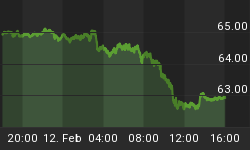Offering yet another lesson in how raising the minimum wage can destroy jobs, particularly for the most poorly compensated workers whom activists had intended to help, the Wall Street Journal reported on Tuesday that Wal-Mart is deploying robots to carry out mundane tasks like mopping its floors and tracking inventory as it seeks to cut down on labor costs after raising wages last year, while also expanding into new services like grocery delivery.
Wal-Mart, which is the largest employer in the US, said at least 300 stores will introduce machines that scan shelves for out-of-stock products. Meanwhile, so-called "autonomous floor scrubbers" will be deployed in 1,500 stores, and conveyor belts that automatically scan and sort products as they are loaded off of trucks will more than double to 1,200. Another 900 stores will install 16-foot-high towers that will allow customers to pick up their online grocery orders without interacting with humans.
Of course, Wal-Mart tried to portray the robots not as job-killing machines, but as tools to help free up employees to do other things like pack groceries for its delivery service. But since grocery delivery is still a business in search of a sustainable business model, as WSJ pointed out last month, these tasks will likely soon be automated, too.
The company said the addition of a single machine can cut a few hours a day of work previously done by a human, or allow Walmart to allocate fewer people to complete a task, a large saving when spread around 4,600 U.S. stores. Executives said they are focused on giving workers more time to do other tasks, and on hiring in growing areas like e-commerce.
Instead, Walmart is spending to battle Amazon.com Inc. and serve more shoppers buying online. Walmart has hired around 40,000 store workers to pick groceries from shelves to fulfill online orders. The company is also raising wages, adding worker training, and buying e-commerce startups. Related: Goldman: Banning Buybacks Would Be Disastrous
Store workers spend two to three hours a day driving a floor scrubber through a store using the manual machines, said a company spokesman last year. The automatic conveyor belts cut the number of workers needed to unload trucks by half, from around eight to four workers, said executives at a company presentation last June.
"With automation we are able to take away some of the tasks that associates don’t enjoy doing," said Mark Propes, senior director of central operations for Walmart US. "At the same time we continue to open up new jobs in other things in the store."
Brain Co., which makes the software that powers Wal-Mart's floor scrubbers, described a workplace where machines and humans would work in harmony as "operational partners." And in a tight labor market, it's difficult for employers to fill some of these low wage positions.
"It’s very hard for employers to get the workforce they need,” Mr. Duffy said. “None of the customers we’re working with are using our machines to reduce their labor costs; they’re using them to allow their teams, their janitorial teams, to perform higher-value tasks."
Retailers and other companies that hire large numbers of low-skilled hourly workers are increasingly looking to automation as they face higher labor costs and aim to improve retention amid the lowest unemployment in decades. Target Corp. added machines to count cash to backrooms of stores last year, following a similar move by Walmart.
Last week Target said it has raised starting wages for store workers to $13 an hour and has previously said it will raise starting wages to $15 next year. Last month, Costco WholesaleCorp. raised starting wages for U.S. and Canadian store workers to $15. Amazon did the same for U.S. workers last year.
Walmart raised starting wages for store workers to $11 last year. Executives said at a recent investor conference that Walmart is keeping wages competitive by store and market.
By Zerohedge

















